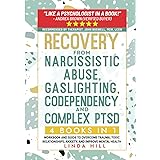Many individuals find themselves stuck. They know what changes are needed, yet action seems impossible. This common struggle can often be linked to how the brain processes learning and emotion. The video above explains a critical connection. It reveals how certain behaviors, particularly intense video gaming, might hinder our natural capacity for growth. By understanding this mechanism, pathways to genuine behavioral change can be explored.
Understanding How Video Game Addiction Affects Learning
The human brain is intricately wired. Its learning circuitry is not an isolated system. The hippocampus, a key area for learning, is deeply connected to our emotional responses. More specifically, a strong link exists with negative emotional circuitry. Behavioral shifts are powerfully driven by the experience of negative emotions. This might seem counterintuitive. However, it is how we are designed to learn from mistakes.
Consider a drastic life event. An individual might discover infidelity in a relationship. This experience often generates intense negative emotions. Subsequently, behavior towards the partner changes profoundly. The person learns not to trust. This demonstrates how negative emotions compel rapid, significant behavioral adjustments. Another example involves social situations. Being bullied for a shirt at school can create a powerful negative feeling. That shirt is then likely never worn again in that context. Such experiences burn lessons into our minds.
The Role of Negative Emotions in Behavioral Change
Our capacity to learn from experience is crucial. It is primarily fueled by discomfort or pain. When a hot stove is touched, a burn results. This negative sensation ensures that stove is avoided in the future. The body and mind form a powerful association. Without this feedback loop, learning would be severely impaired. Negative emotions thus serve as vital signals. They alert us to dangers, errors, or areas needing improvement. This inherent learning system is robust. It pushes us towards safer or more effective behaviors.
However, this system relies on us feeling these emotions. If these essential signals are suppressed, the learning process becomes disrupted. This is where modern coping mechanisms can pose a problem. People often seek ways to avoid uncomfortable feelings. The immediate relief can be appealing. Yet, the long-term consequences might be detrimental to personal growth.
Video Games and Emotional Suppression
Numerous studies have investigated brain activity. fMRI research, involving detailed brain scans, offers insights. These studies suggest that video games can suppress negative emotions. When a difficult day arises, people often seek an escape. A fight with a loved one or work stress might lead to feelings of frustration. Turning to video games is a common response. While gaming, real-world problems can temporarily fade. This escapism provides immediate relief from emotional pain.
This suppression, however, carries a cost. The negative emotional circuitry is effectively shut off. This action directly impacts the capacity to learn. If the brain is not allowed to feel the discomfort associated with real-life problems, it cannot learn to resolve them. The vital connection between emotional feedback and behavioral adjustment is severed. Thus, people might find themselves repeating mistakes. They struggle to adapt to challenging circumstances. The temporary solace becomes a barrier to genuine progress.
Escapism’s Stunting Effect on Personal Growth
Escapism offers a brief reprieve. It does not provide a solution. The problems remain unresolved. This cycle can lead to individuals feeling profoundly stuck. They are often aware of what needs to change. Gamers, for instance, frequently possess higher cognitive abilities. Their fluid IQs can be 20% higher than average. Despite this intelligence, they may struggle to initiate desired actions. The disconnect is frustrating. This inability to act can lead to self-judgment. Many may conclude they are simply lazy. This conclusion, however, often misses the underlying neurological mechanism.
A similar dynamic is observed with other coping mechanisms. Alcohol consumption, for example, can also suppress painful emotions. Instead of confronting issues at work or in relationships, drinking might offer a temporary escape. This avoidance prevents the necessary emotional processing. Without facing these feelings, motivation for change diminishes. The learning derived from failure is bypassed. Therefore, true behavioral modification is hindered.
The Connection Between Gaming, Rage, and Real-Life Frustration
Interestingly, emotions still find an outlet. While real-world negative emotions are suppressed, they do not simply vanish. They can be redirected. Many instances of “rage quitting” or aggressive behavior in video games are observed. This intense emotional outburst is often a sign. It suggests suppressed frustration from other areas of life. A player exhibiting extreme anger in a game might be experiencing unhappiness elsewhere. The game becomes a safe, albeit unproductive, channel for bottled-up emotions.
This redirection further complicates learning. Negative emotions are powerful drivers for change. They prompt us to address issues in our actual lives. When these emotions are consistently discharged into a virtual environment, their impact on real-world behavior is neutralized. The learning circuitry remains disengaged. Therefore, the cycle of feeling stuck persists. The individual fails to internalize lessons. There is no impetus for necessary real-life adjustments.
Breaking Free from Video Game Habits and Fostering Behavioral Change
The insights from brain science offer a clear path. Understanding the suppression of negative emotions is the first step. It is crucial to recognize that avoidance prevents learning. The brain’s natural ability to adapt must be reactivated. This involves consciously allowing oneself to experience discomfort. These feelings, though unpleasant, are signals for growth.
Strategies for re-engaging the learning circuitry include setting realistic goals. Small, manageable steps can be taken. Actively reflecting on challenges without judgment is also vital. Instead of escaping, problems can be approached with curiosity. What lesson is this difficulty trying to teach? How can I respond differently next time? This shift in perspective transforms obstacles into opportunities for learning. Professional support can also be invaluable. Therapists can guide individuals through emotional processing. They can help develop healthier coping mechanisms. This proactive approach encourages genuine behavioral change. It helps individuals move forward. The goal is to live a life where frustrations are faced. Lessons are learned. And personal growth becomes an ongoing process. This re-engagement with emotional signals is key to overcoming how video game addiction affects learning.











